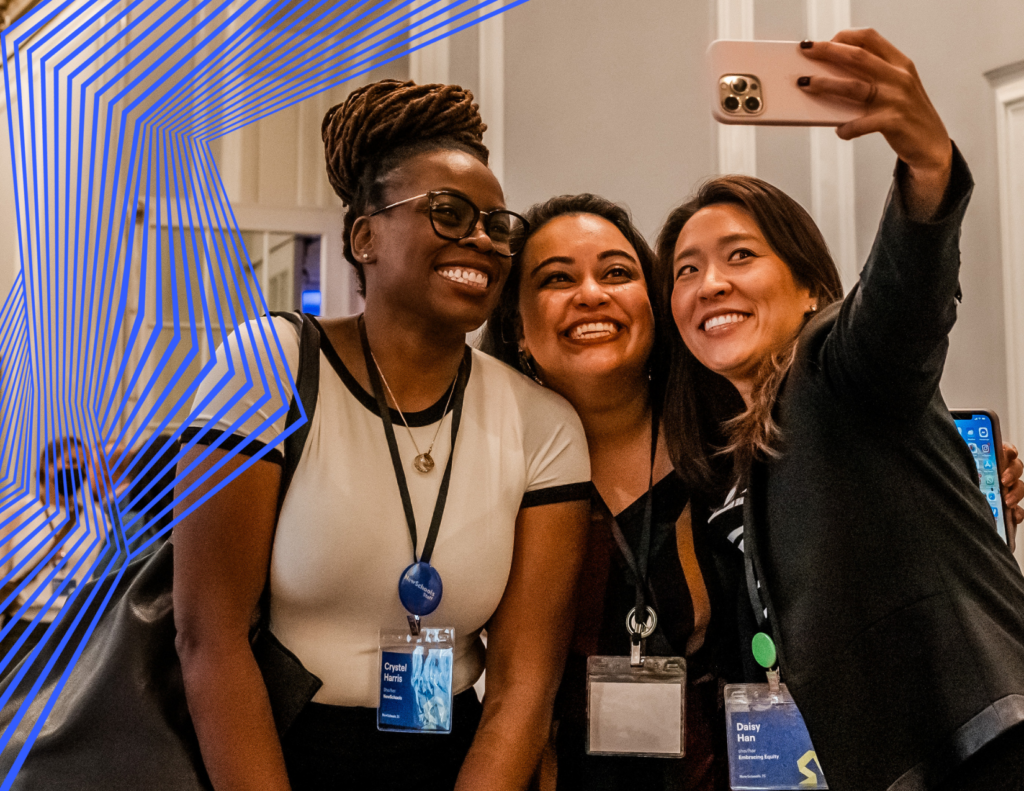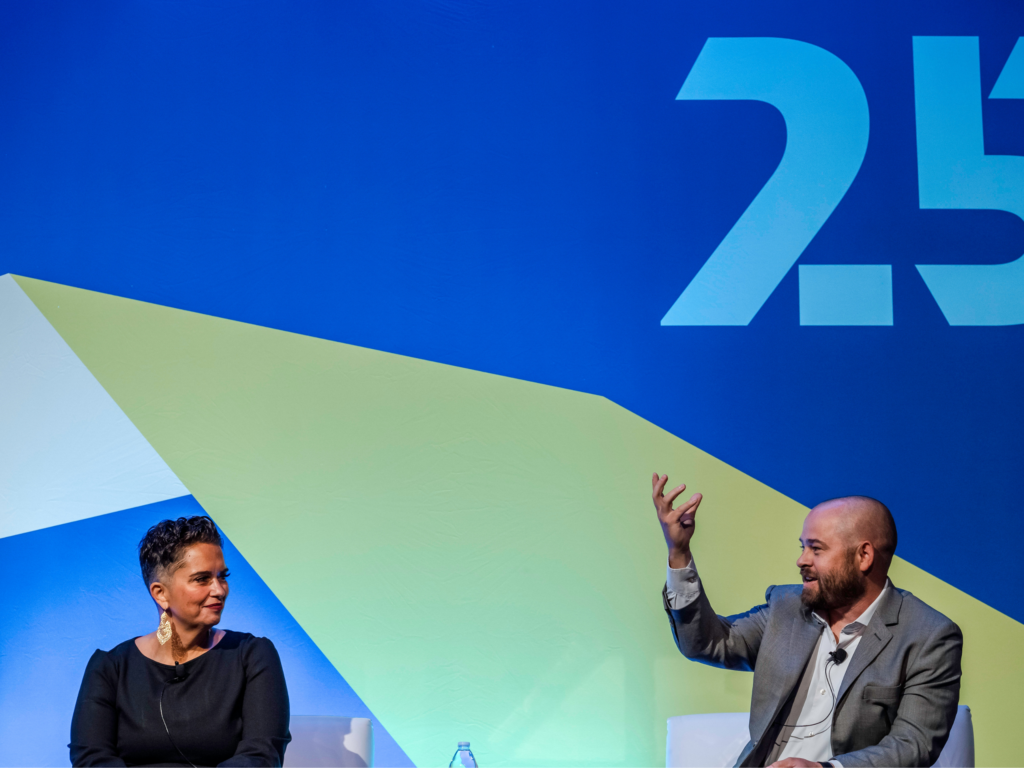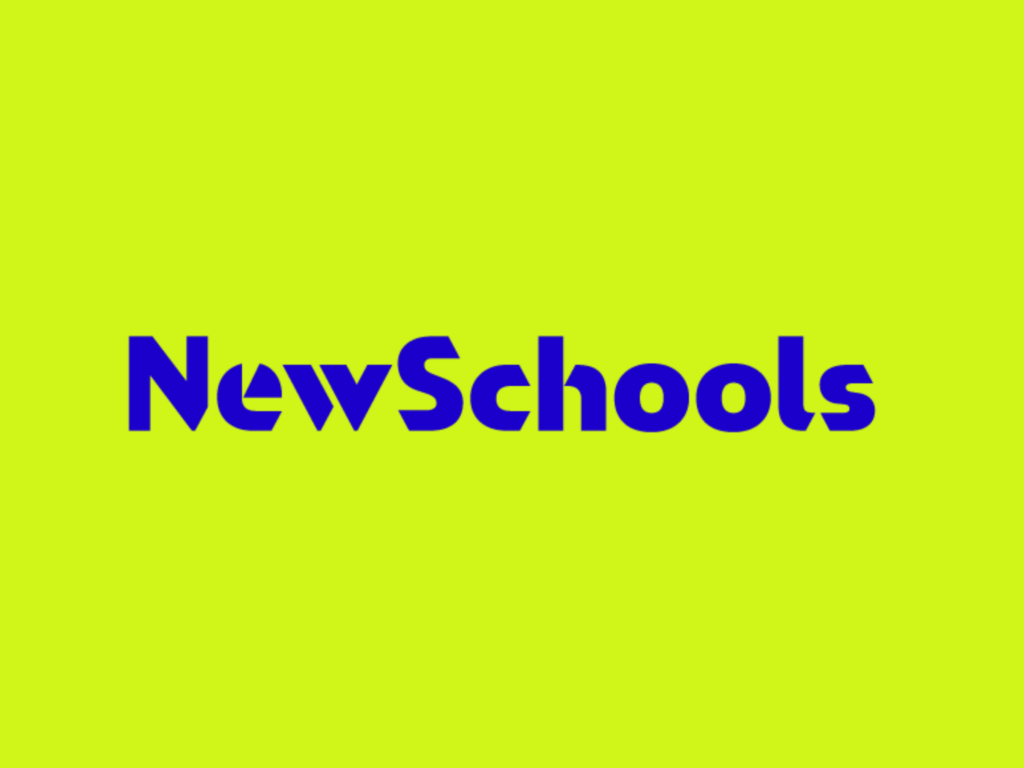 Answering the question of whether or not education entrepreneurial organizations should get involved in advocating directly for policy change was the topic of Breakout #3: Political Savvy: Guidebook for a New Landscape. This conversation seemed especially timely coming on the heels of intense debate about Colorado’s SB 191, which would tie teacher’s tenure to student achievement. The session included a roundtable discussion which included school managers, reform advocates, and funders.
Answering the question of whether or not education entrepreneurial organizations should get involved in advocating directly for policy change was the topic of Breakout #3: Political Savvy: Guidebook for a New Landscape. This conversation seemed especially timely coming on the heels of intense debate about Colorado’s SB 191, which would tie teacher’s tenure to student achievement. The session included a roundtable discussion which included school managers, reform advocates, and funders.
Session participants deliberated over the role that advocacy should play in education reform organizations today. One of the many concerns of these organizations in determining the role that advocacy will play in their work is the influence of money in the political system. As teachers’ unions’ continue to prove they are a formidable obstacle to reform efforts, discussants considered taking a more active role in reform advocacy.
When moderator Dan Katzir of the Broad Foundation asked Steve Barr, Founder of Green Dot Public Schools, what it would take for organizations to effectively advocate for the changes they believe in, he answered, “You’ve got to understand the politics involved.” Jonah Edelman of Stand for Children picked up right where Barr left off, insisting that “Politics is easily mastered. It all comes down to incentives.”
It doesn’t take a political scientist to identify which incentives win out most often. Money. “If just part of the money that goes into charter schools went into lobbying for education reform, we’d be a lot farther along than we are,” continued Edelman. Joe Williams of Democrats for Education Reform seconded this suggestion, pondering what effect including advocacy in the per pupil budgets of charter schools.
While money goes a long way in the fight to create a successful learning environment for our children, organizations also need champions of their causes and to learn how to control the messages that the media disperses. Alice Johnson Cain of Hope Street Group urged participants to begin writing letters to their local newspapers and to start calling representatives. In February, politician Omar Ahmad explained why old-fashioned correspondence is so effective at the TED conference.
The Session ended with a round of caution from the panel. Andy Rotherham of Bellwether Education Partners warned that “it’s not in every nonprofit’s best interests to rush into the legislature and start arguing their point.” Some organizations have lean staffs and operating budgets. Advocacy can strain those already limited resources. After fielding questions and comments from the audience, Katzir reminded everyone apropos of the saying “If you are not at the table, you could be on the menu!”


